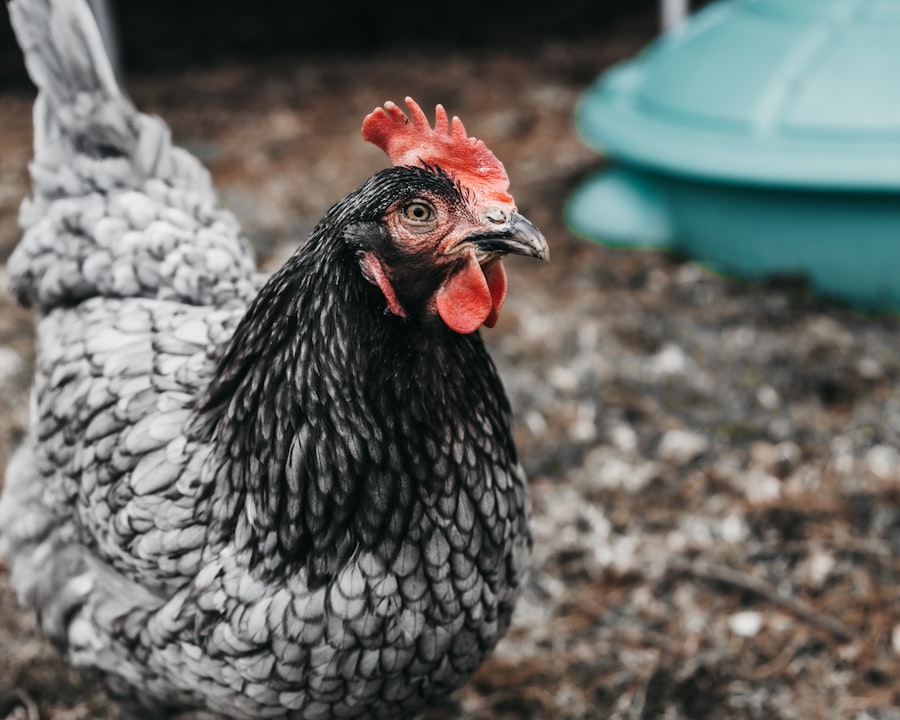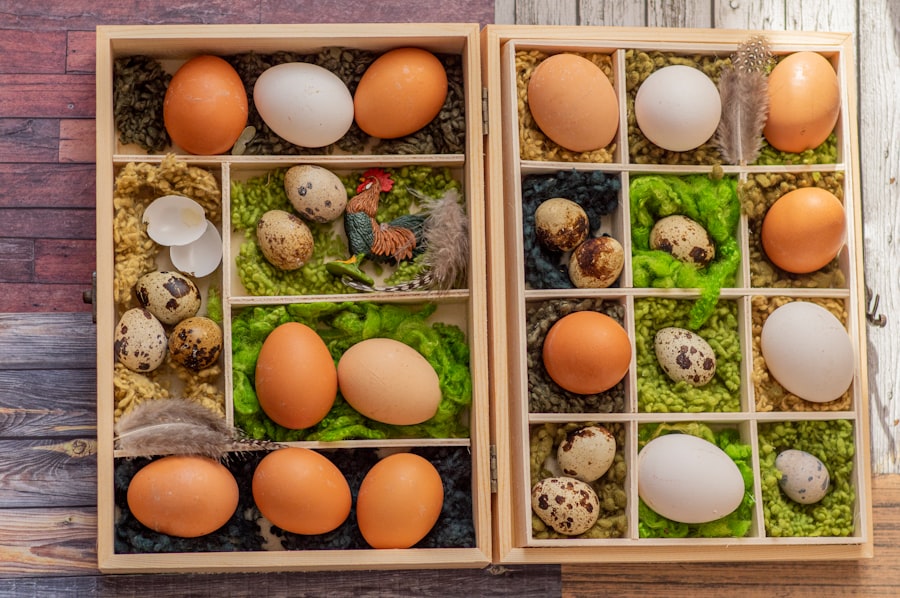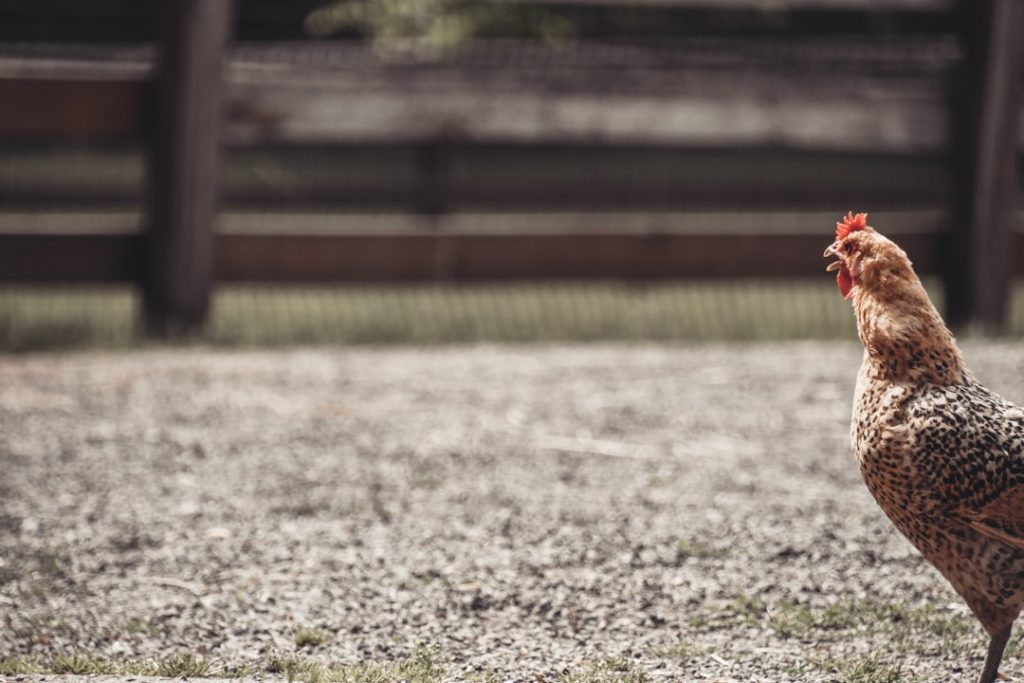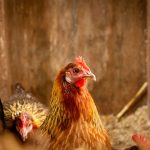When considering keeping chickens, it’s essential to account for the initial costs. The primary expense is purchasing the chickens, with prices varying based on breed and age. A suitable coop and run are necessary investments, which can be substantial, especially for larger or feature-rich options.
Additional upfront costs include feeders, waterers, bedding, and chicken care tools. Local permits or licenses may also be required, adding to the initial expenses. It’s crucial to budget appropriately for these startup costs before committing to chicken keeping.
Preparing an appropriate outdoor space for chickens is another initial expense to consider. This may involve installing fencing to create a secure area for the chickens to roam and implementing landscaping features to provide shade and protection from weather conditions. Predator-proofing measures, such as hardware cloth or electric fencing, may also be necessary to ensure the chickens’ safety.
These additional setup costs can significantly impact the overall budget for chicken care and should be factored into the initial planning process.
Table of Contents
- 1 Ongoing Expenses for Chicken Care
- 2 Cost of Chicken Housing and Equipment
- 3 Feed and Nutrition Costs
- 4 Veterinary and Health Care Expenses
- 5 Additional Costs for Chicken Entertainment and Enrichment
- 6 Overall Annual Cost of Keeping Chickens
- 7 FAQs
- 7.1 What are the initial costs of keeping chickens in the UK?
- 7.2 What are the ongoing costs of keeping chickens in the UK?
- 7.3 How much does chicken feed cost in the UK?
- 7.4 Are there any other expenses to consider when keeping chickens in the UK?
- 7.5 What are the potential cost savings of keeping chickens in the UK?
Key Takeaways
- Initial costs include purchasing chickens, a coop, and basic supplies
- Ongoing expenses include feed, bedding, and regular maintenance
- Chicken housing and equipment can range from DIY to pre-made options
- Feed and nutrition costs depend on the type and quality of feed
- Veterinary care and health expenses should be budgeted for annually
- Additional costs for entertainment and enrichment can include toys and treats
- Overall annual cost of keeping chickens varies based on individual needs and circumstances
Ongoing Expenses for Chicken Care
Feed Costs
One of the most significant ongoing expenses is the cost of feed. Chickens require a balanced diet to stay healthy and produce eggs, so investing in high-quality feed is essential. The cost of feed can vary depending on the type and quality of feed you choose, as well as the number of chickens you have. Additionally, you may need to budget for supplements such as grit or oyster shell to ensure your chickens are getting all the nutrients they need.
Bedding Expenses
Another ongoing expense for chicken care is bedding. Chickens require clean and comfortable bedding in their coop, which will need to be replaced regularly. The cost of bedding can add up over time, especially if you opt for higher quality options such as pine shavings or straw.
Maintenance and Cleaning
Additionally, you’ll need to budget for regular maintenance and cleaning of the coop and run, including replacing any worn or damaged equipment. These ongoing expenses are important to consider when budgeting for the long-term care of your chickens.
Cost of Chicken Housing and Equipment

The cost of chicken housing and equipment is a significant consideration when planning to keep chickens. The first expense to consider is the coop itself. The size and design of the coop can impact the cost, with larger or more elaborate coops typically being more expensive.
Additionally, you’ll need to invest in nesting boxes, perches, and ventilation to ensure your chickens have a comfortable and safe living space. Other necessary equipment includes feeders and waterers, which should be durable and easy to clean to ensure the health of your chickens. In addition to the coop and equipment, you’ll also need to budget for a secure outdoor run for your chickens.
This may include fencing, gates, and predator-proofing measures to keep your chickens safe from potential threats. The cost of these outdoor structures can vary depending on the size of your flock and the level of security required. It’s important to invest in high-quality housing and equipment to ensure the safety and well-being of your chickens, so budgeting for these expenses is essential.
Feed and Nutrition Costs
Feed and nutrition costs are a significant ongoing expense when keeping chickens. Chickens require a balanced diet to stay healthy and produce eggs, so investing in high-quality feed is essential. The cost of feed can vary depending on the type and quality of feed you choose, as well as the number of chickens you have.
Additionally, you may need to budget for supplements such as grit or oyster shell to ensure your chickens are getting all the nutrients they need. In addition to feed, it’s important to consider the cost of treats and supplements for your chickens. While not essential, treats such as mealworms or kitchen scraps can be a fun way to enrich your chickens’ diet and provide them with additional nutrients.
Additionally, you may need to budget for supplements such as probiotics or vitamins to support your chickens’ overall health. These additional feed and nutrition costs are important to consider when planning for the ongoing care of your flock.
Veterinary and Health Care Expenses
Another important aspect of chicken care is veterinary and health care expenses. While chickens are generally hardy animals, they can still require medical attention from time to time. It’s important to budget for routine veterinary care such as vaccinations and parasite control, as well as potential emergency expenses for injuries or illnesses.
Additionally, you may need to invest in basic medical supplies such as wound care products or antibiotics to have on hand in case of an emergency. In addition to veterinary care, it’s important to consider the cost of preventative measures such as predator-proofing and biosecurity measures. Investing in secure fencing, locks, and other predator deterrents can help protect your flock from potential threats and reduce the risk of costly health issues.
Additionally, implementing biosecurity measures such as regular cleaning and disinfection can help prevent the spread of disease within your flock. These veterinary and health care expenses are important to consider when budgeting for the overall cost of keeping chickens.
Additional Costs for Chicken Entertainment and Enrichment

Mental Stimulation and Engagement
Investing in toys such as hanging treats or boredom busters can keep your chickens mentally stimulated and engaged. Additionally, environmental enrichment such as dust baths or natural perches can provide your chickens with opportunities to exhibit natural behaviors.
Outdoor Exploration and Enrichment
Providing opportunities for free-ranging or supervised outdoor time is another important consideration for chicken entertainment and enrichment. This may involve investing in portable fencing or chicken tractors to create safe outdoor spaces for your chickens to explore. Landscaping or planting chicken-friendly vegetation can also provide shade and natural enrichment for your flock.
Considering the Costs
These additional costs for chicken entertainment and enrichment are important to consider when planning for the overall well-being of your flock.
Overall Annual Cost of Keeping Chickens
When considering all of the expenses associated with keeping chickens, it’s important to calculate the overall annual cost. This includes factoring in both initial expenses such as purchasing chickens and setting up a coop, as well as ongoing costs such as feed, bedding, veterinary care, and entertainment. By calculating these expenses on an annual basis, you can get a better understanding of the financial commitment required for keeping chickens.
In addition to the direct costs associated with chicken care, it’s also important to consider indirect costs such as utilities and maintenance for their housing and equipment. This may include factoring in the cost of electricity for heating or lighting in the coop, as well as regular maintenance and repairs for their living space. By accounting for these indirect costs, you can get a more accurate picture of the overall annual cost of keeping chickens.
In conclusion, keeping chickens can be a rewarding experience, but it’s important to carefully consider the financial commitment involved. From initial expenses such as purchasing chickens and setting up a coop, to ongoing costs such as feed, bedding, veterinary care, and entertainment, there are many factors to consider when budgeting for chicken care. By carefully calculating the overall annual cost of keeping chickens, you can ensure that you are prepared for the financial responsibility of caring for a flock.
If you’re considering keeping chickens in the UK, you may also be interested in learning about different types of chicken coops. Poultry Wizard offers a helpful article on farmhouse chicken coops, which can provide valuable information on the cost and maintenance of housing for your chickens. Check out their article here for more details on creating a suitable living space for your feathered friends.
FAQs
What are the initial costs of keeping chickens in the UK?
The initial costs of keeping chickens in the UK include purchasing a suitable coop, feeders, waterers, bedding, and of course, the chickens themselves. These costs can vary depending on the quality and size of the items purchased.
What are the ongoing costs of keeping chickens in the UK?
The ongoing costs of keeping chickens in the UK include purchasing chicken feed, bedding, and any necessary medical care. Additionally, there may be costs associated with maintaining the coop and run, as well as any additional equipment needed.
How much does chicken feed cost in the UK?
The cost of chicken feed in the UK can vary depending on the type and quality of the feed. On average, a 20kg bag of chicken feed can cost between £8-£15.
Are there any other expenses to consider when keeping chickens in the UK?
In addition to the initial and ongoing costs, chicken keepers in the UK should also consider potential expenses for veterinary care, predator-proofing the coop and run, and any additional equipment or supplies needed for the chickens’ well-being.
What are the potential cost savings of keeping chickens in the UK?
While there are initial and ongoing costs associated with keeping chickens in the UK, there are also potential cost savings. For example, having fresh eggs readily available can reduce the need to purchase eggs from the store, and chickens can also help with pest control in the garden.
Meet Walter, the feathered-friend fanatic of Florida! Nestled in the sunshine state, Walter struts through life with his feathered companions, clucking his way to happiness. With a coop that’s fancier than a five-star hotel, he’s the Don Juan of the chicken world. When he’s not teaching his hens to do the cha-cha, you’ll find him in a heated debate with his prized rooster, Sir Clucks-a-Lot. Walter’s poultry passion is no yolk; he’s the sunny-side-up guy you never knew you needed in your flock of friends!







